For the first time ever, the Toronto International Film Festival is paying tribute to one of Hollywood’s greatest directors, Steven Spielberg.
From December 21 to January 10, TIFF will host Close Encounters: The Cinema of Steven Spielberg, a retrospective of 28 films he has written, directed or produced. These range from Schindler’s List to Raiders of the Lost Ark.
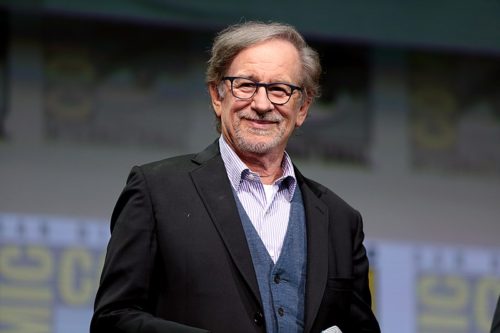
Among them are some of his earliest movies, Duel and The Sugarland Express, which gave viewers more than just an inkling of the talents he possessed.
Spielberg was only 25 when he directed Duel (1971), one of his first major films. It’s spare and, for the most part, riveting.
Dennis Weaver plays Dave Mann, a middle-aged salesman who’s terrorized by an unseen stalker. Leaving his home in a cookie-cutter suburb of Los Angeles, Mann drives his red sedan east toward the desert for a business meeting. Little does he know what awaits him on the highway ahead.
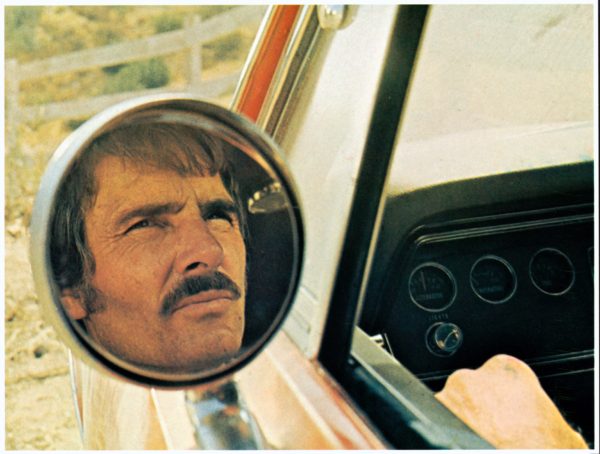
A dusty oil tanker, emblazoned with the word Flammable and belching grey smoke, passes him. Mann overtakes the truck, which honks at him. It seems like an uneventful beginning for a thriller, but that’s the beauty of this movie. It lulls you into complacency.
Mann pulls into a gas station and, lo and behold, the tanker follows him there. The identity of the tanker driver remains anonymous. Only his pointy brown boots are visible. Mann calls his wife from a telephone booth and apologizes for his behavior the night before.
Taking to the road again, Mann continues his journey. This time, the tanker won’t let him pass. “I’m in no mood to play games,” he grumbles. “Let’s go.” Suddenly, the driver of the tanker beckons Mann to overtake him. He doesn’t tell Mann about an oncoming car in the passing lane. At the last second, he swerves out of danger.
Spielberg lets the events speak for themselves. He doesn’t even drop a hint of what is going on. It’s all a mystery. The eerie musical score contributes to the mood of uncertainty.
Finally, Mann passes the tanker. Within minutes, the tanker catches up and bumps his back fender. Mann, growing increasingly nervous, pulls into a roadside cafe. “That truck driver tried to kill me,” he tells an old man in the parking lot.
Having concluded that he’s finally eluded the tanker, Mann breathes a sigh of relief. “It was a nightmare, but it’s all over now,” he tells himself.
As he sits in the cafe, the tanker returns. Five men, wearing almost identical brown boots, sit at the bar. But which of them is the driver who’s been harassing him? He wonders whether he should apologize or call the police.
A man leaves the cafe and walks toward the tanker, but he drives off in a jeep. Deeply agitated and annoyed, Mann approaches another man eating lunch. “Cut it out,” he says. The man doesn’t have the faintest idea what Mann wants. They get into a fistfight.
Suddenly, the tanker pulls away from the cafe. Mann chases it until it disappears.
What is going on? Spielberg doesn’t give you even the slightest hint.
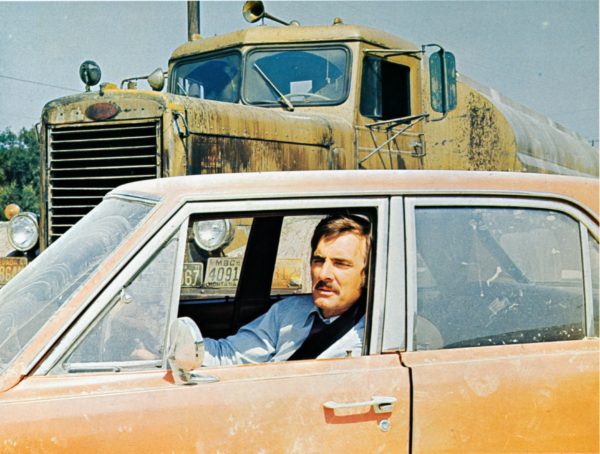
Mann stops next to a school bus brimming with children. Continuing on, he reaches railway tracks. The tanker tries to push him into the path of a speeding train.
At long last, he calls the police. But as he’s talking, the tanker barrels toward the telephone booth. Mann is lucky to escape with his life.
This cat-and-mouse game goes on and on until its fiery climax.
This low-budget movie, replete with thrills and chills, falters toward the end, with the action scenes becoming repetitive and predictable. Nevertheless, Duel has enough octane to leave a viewer quite satisfied.
Filmed in 1974, The Sugarland Express was released a year before Spielberg’s breakthrough film, Jaws.
Based on a real incident in Texas in 1969, this road movie stars Goldie Hawn and William Atherton as an obsessed couple intent on reclaiming their two-year-old son from foster care.
Lou Jean (Hawn), an unemployed beautician, has a plan. Visiting her estranged husband, Clovis (Atherton), in a detention centre, she says, “I want my baby back. Are you going to help me or not?” Clovis agrees, setting off a chain of events that end in bloodshed.
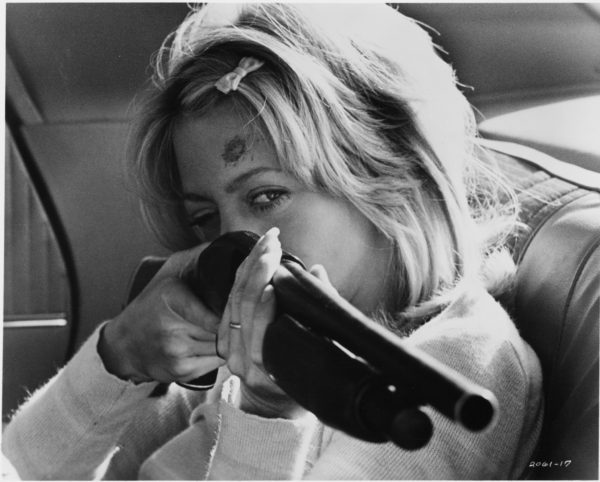
A petty criminal with a heart of gold, Clovis literally walks out of the faculty with Lou Jean in tow. Determined to be reunited with their son, they foolishly hijack a Texas Highway patrol car, ordering the police officer, Slide (Michael Sacks), to drive them to Sugarland, the small town where their son is under the care of an elderly couple. In short order, a caravan of police cars give chase, creating a state-wide sensation that attracts media attention.
Slide and Lou Jean’s father beg them to surrender, but they ignore their pleas. They relent when an empathetic senior police officer (Ben Johnson) promises Clovis he’ll be united with his son. The arrangement doesn’t quite pan out, causing chaos and heartbreak. In the meantime, Clovis and Lou Jean become local folk heroes.
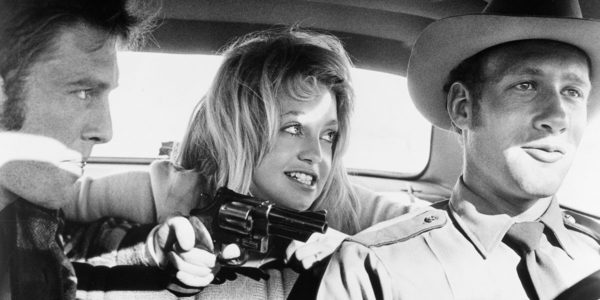
In retrospect, Duel and The Sugarland Express were harbingers of what could be expected from an up-and-coming filmmaker like Steven Spielberg.
